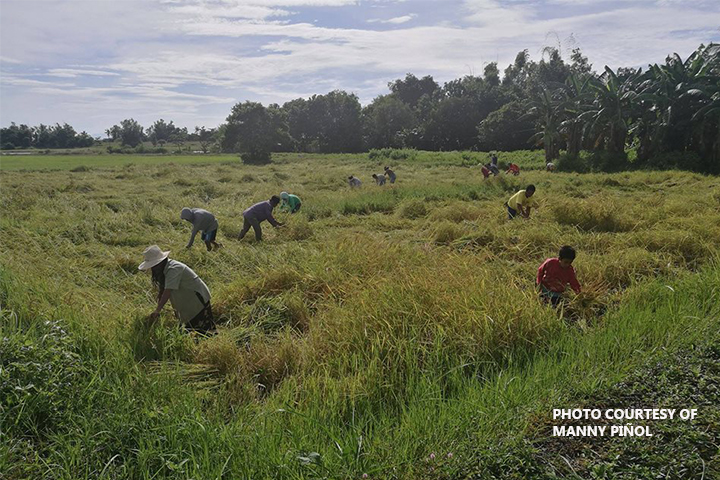Philippine News
Workshop aims to empower farmers via skills, competency upgrade

TESDA and SEARCA conducted a “Regional Workshop on Competency Certification for Agricultural Workers in Southeast Asia” at SEARCA’s headquarters in Los Baños, Laguna on May 9-10. (PNA photo)
MANILA — The Technical Education and Skills Development Authority (TESDA) and the Southeast Asian Regional Center for Graduate Study and Research in Agriculture (SEARCA) have partnered to empower farmers and other agricultural workers through skills training and competency upgrade.
TESDA and SEARCA conducted a “Regional Workshop on Competency Certification for Agricultural Workers in Southeast Asia” at SEARCA’s headquarters in Los Baños, Laguna on May 9-10.
The first activity under TESDA and SEARCA’s partnership was the two-day agricultural workshop that aims to strengthen and promote competency certification systems for farmers.
“TESDA saw it as an opportunity for the Philippines to take the lead in efforts to push for the development of competency standards for agricultural workers in the region, and to initially foster mutual recognition among neighboring countries,” SEARCA Director Gil Saguiguit Jr. told the Philippine News Agency (PNA) on Thursday.
During the workshop, recommendations on how to promote the recognition of skills of agricultural workers were gathered. The recommendations will be presented at the 4th High Officials Meeting on Southeast Asia Technical and Vocational Education and Training (TVET) that TESDA will host on September 4-5.
In an interview with PNA, Bernie Justimbaste, TVET Expert of the SEARCA project, “Towards Development of Competency Standards for Agricultural Workers in Southeast Asia”, said getting a certification is essential for farmers.
“Traditionally, farmers develop their skills and knowledge largely through informal ways. But the formal education sector issues diplomas or certifications, which the employers value because these are used as tools to hire and select in more effective and efficient ways,” he explained.
Justimbaste added that while most farmers are least concerned about certifications and qualifications, the labor markets in the ASEAN economies are rapidly changing.
“The young ones will seek higher paying jobs outside agriculture, and the older farmers have to continue to learn and acquire knowledge and skills. So they need alternative pathways to lifelong learning and this is where the value of certification comes in,” he remarked.
Justimbaste emphasized that competency certification will recognize the knowledge and skills that farmers got both from the informal and formal ways.
“Thus, certification will help avoid unnecessary duplication of training, while it will also encourage farmers to upgrade their skills or knowledge,” he said.
Saguiguit said the workshop was conceptualized after SEARCA pushed its competency study/proposal at the SEA-TVET High Officials Meeting held in Kuala Lumpur in May 2017.
He related that in SEARCA’s meeting with Senator Cynthia Villar on Wednesday, the lady lawmaker suggested that SEARCA, TESDA, and the University of the Philippines in Los Baños (UPLB) should forge a partnership to empower farmers.
“Farmers can increase their productivity and income if we will teach them about new technologies, sustainable farming practices, and if they will have access to the results of agricultural research and development,” Saguiguit said.
Training or learning modules specifically geared for farmers must be developed, he added.
“(Based on Villar’s suggestion), UPLB experts will be given professorial chairs to develop the modules that can cater to the leading commodities or crops grown in specific geographic areas, such as coffee in Cavite, cacao in Davao, etc.,” Saguiguit said. “Now, who will teach about the content of these modules? There must be a ‘training of trainers’ program.”
The trainers, he said, will also be taught the most effective teaching techniques. They can be from state universities and colleges, and TESDA can run the training courses in farm schools across the country.





















